- Home
- smallbusiness
- Lifestyle
- 21 lifestyle changes to make if you want to save more money
21 lifestyle changes to make if you want to save more money
Record all of the money you spend.

Go homemade.

Restaurant bills add up quickly — the more food you can make at home, the better off your food budget will be. Plus, making your own meals tends to be healthier than eating out.
Try cooking large quantities on the weekends so you'll have leftovers to pack for lunch during the week. Also, consider investing in a crock pot. Crock pot meals cost around $2 per person, while the average takeout dinner or restaurant meal costs upwards of $50 for a family of four — this means you could save tremendously if you traded in a crock pot meal for take-out once a week.
Grocery shop on a full stomach.

Danielle Wagasky, who spent five years stretching $14,000 a year to cover her family's needs and managed to cut her grocery bill from $800 a month to $400, recently shared her top tricks for slicing your grocery expenses.
"First, go shopping on a full tummy," she told Business Insider. While seemingly harmless, shopping on an empty stomach can be an expensive habit. Everything — particularly junk food — starts to look delicious, and without realizing it, you're tossing all sorts of unnecessary items into your cart.
Try eating a healthy snack before heading to the store so your cravings for processed, packaged foods aren't out of control. Your budget — and waistline — will thank you.
Make bigger and fewer trips to the grocery store.

The less time you spend in the grocery store, the less you'll spend.
"Think about the last time you just went into the store for a few items," Wagasky writes in her book "Living a Beautiful Life on Less." "Did you buy only those few items you were in need of, or did you spend a bit more? Did you impulse buy because of the lovely end cap display of goodies or because that deal was just too good to resist? It happens. Shopping less often takes away the temptation to do this."
Wagasky shops just once a month, but don't feel the need to instantaneously change your shopping habits. Start small, she encourages: "If you are a three-times-a-week shopper, try to go only once this week." Eventually, you can work your way up to once a month.
Withdraw money exclusively from your bank's ATM.

Whether it be out of laziness or ignorance, we continue to pay ATM fees. The seemingly insignificant charges can add up over time — consumers these days are paying an average of $4.35 each time they use an out-of-network ATM.
The simplest way to avoid fees is to withdraw cash from your bank's ATM. If the machine doesn't have your bank's logo on it, don't use it.
Stop buying a daily coffee.

Author of "The Automatic Millionaire," David Bach, coined the term, "The Latte Factor," which basically says that if you ditch your $4 latte every morning, you'd have quite a bit of money to contribute towards savings — about $30 a week, or $120 a month. Over the course of a few decades, that money could grow substantially.
Rather than hitting up Starbucks every day, consider investing in a nice coffee maker, even if the price tag is a bit steep — overtime, it'll save you in the long run.
(And note that while Bach calls it "the latte factor," the same applies if you buy a daily muffin or smoothie or a few sodas. If you're in the habit of mindlessly spending a few unnecessary bucks per day, that money would be better used in savings.)
Automate your finances.

Most bills today can be paid online, and you often have the option of setting up automatic payments. Try automating consistent payments for fixed costs — cable, internet, Netflix, and insurance — so that you don't have to think about them every month, and never miss a bill.
You can do the same for variable costs such as credit card bills, although you'll want to check in on your account regularly to make sure things are going smoothly.
Go cash-only.
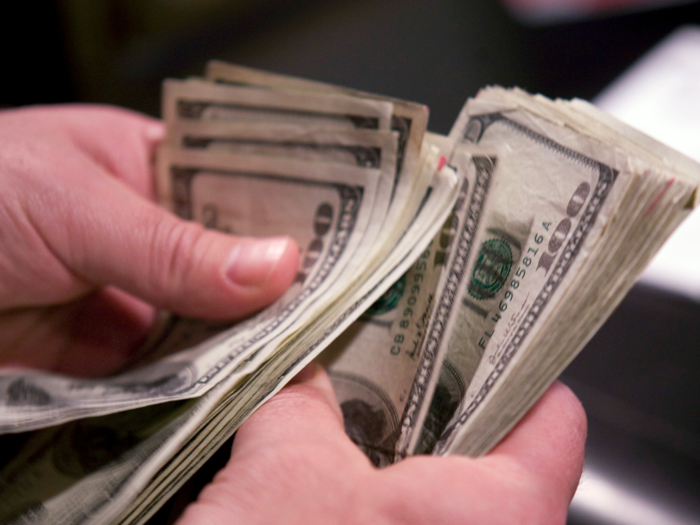
Research shows that people spend significantly more when using credit cards instead of cash. So if you're looking to curb your spending, try going all cash.
The cash-only diet is as simple as it sounds: You ditch the plastic, determine how much money to withdraw for a certain amount of time, and buy things only with the cash you allocated for yourself. When it runs out, you're out of funds until your next scheduled withdrawal.
"Rather than blindly using your credit card and deferring whether it's worth it or not until your bill comes — by that time, it's too late — using cash forces you to make that decision when you pay," writes Ramit Sethi, author of "I Will Teach You To Be Rich."
Cancel your underused subscriptions and start paying 'à la carte.'
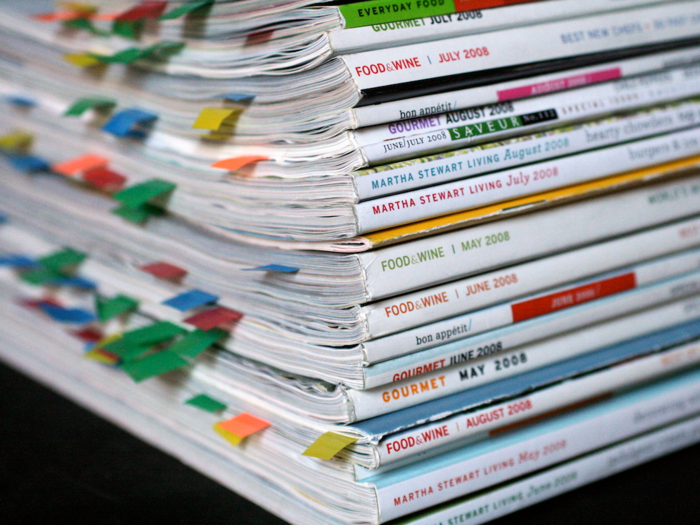
"Cancel all the discretionary subscriptions you can: your magazines, TiVo, cable — even your gym," Sethi writes. "Then, buy what you need À la carte. Instead of paying for a ton of channels you never watch on cable, buy only the episodes you watch for $1.99 each off iTunes. Buy a day pass for the gym each time you go."
His "À la carte' method" works for three reasons, he explains: You're likely overpaying already, you're forced to be conscious about your spending, and you value what you pay for.
Have the hard money talks with your spouse.

Discussing your personal finances, spending patterns, and financial plan with your partner is crucial to set your family up for future financial success.
"Dealing with financial matters is something any couple can do, but you've got to do the job yourselves, or it just won't get done," writes David Bach in his book "Smart Couples Finish Rich." "If the two of you don't make your finances a priority, they won't be one."
Get comfortable talking about money, because a single conversation won't do it.
Ditch brand-name products.

Go generic whenever possible.
"You have to prioritize because you can't have the best of everything," Sethi writes in "I Will Teach You To Be Rich." "Buy brand-name for the stuff you care about, and cut costs mercilessly on commodities you don't care about by buying generic."
Areas you may be able to save money on include: toiletries, food, certain clothes, and pet supplies. What is important to you? And what are you willing to sacrifice? Establish what you want to prioritize and what you can de-prioritize.
Cut cable.

The average American household pays $64 a month for cable, the International Business Times reports, which comes out to $768 a year. That's a large sum to pay for a service that people often don't take full advantage over.
One such alternative, Netflix, costs only $8 per month and provides more than enough entertainment to satisfy most families. A year of Netflix would cost you about $100, meaning you'd save over $650 in cable costs.
Check out more cable replacements if you're tired of excessive channels and outrageous bills.
Buy less meat.

A simple way to trim your grocery bill is to buy less meat. "Try substituting beans and wheat berries for meat in your favorite recipes," Wagasky suggests. "Enchiladas, spaghetti, and casseroles taste just as good with the meat omitted."
If you have a harder time parting ways with your meat, start by establishing one meatless day a week. Eliminating meat just once or twice a week can make a significant difference in your grocery bill.
Create a no spending day.

Choose a "no spending day" once a week and challenge yourself to not spend a single dollar. If forces you to become a more conscious spender, and will illuminate how easy society makes it for you to open your wallet on a daily basis.
"Technically, even if you don't open your wallet, you're still spending money on things like rent, car insurance, and subscriptions," explains Sethi. "You just didn't count them. But that's even more of a reason to create a 'no spending' day on the money in your wallet: because you can actively control it."
Buy food seasonally.

Sometimes, when you buy is more important than where you buy.
For example, in the summer, barbecue items will be at rock-bottom prices, making it the perfect time to stock up on chips, crackers, ketchup, relish, mayo, and mustard.
Along the same lines, seasonal fruits and vegetables are cheaper, and they also taste better. Consult this handy graphic to determine what's in season.
Pay more than the minimum balance on your credit cards.
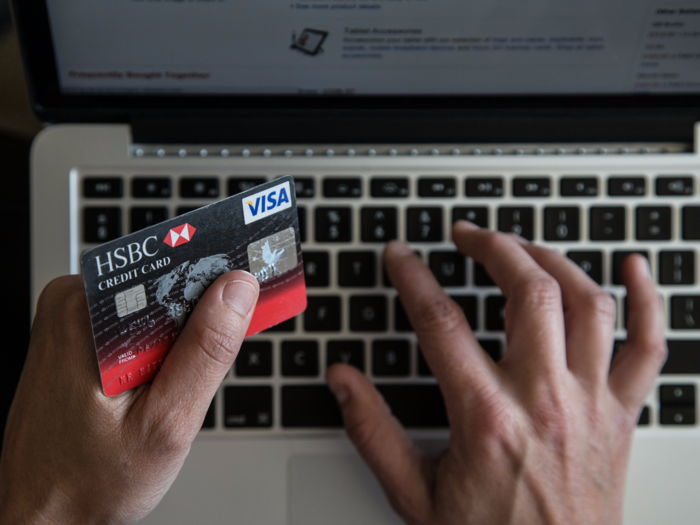
Most credit cards only require you to pay 1% to 3% of your balance each month, which can be an alluring prospect if your budget is tight. However, taking that route will cost you in the long run. Interest rates vary depending on the card, but credit cards charge an average of 15% on unpaid balances.
If you can divert money from another part of your budget or cut back on spending to free up your cash, do it. In the long run, paying only the minimum will cost you a fortune.
Stop buying fast food.
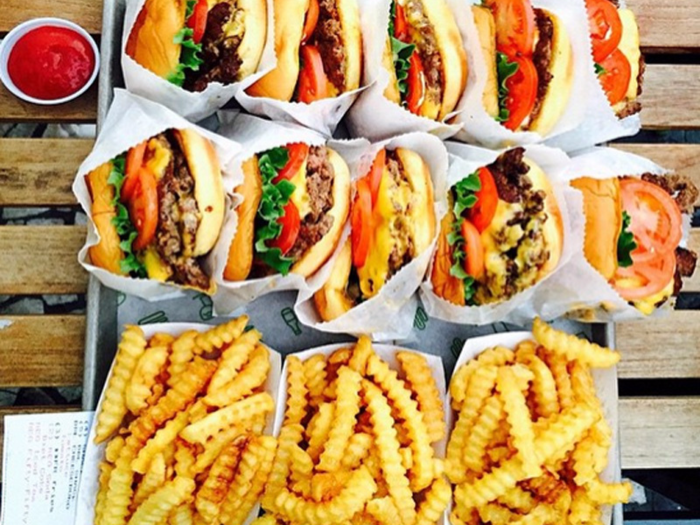
You're only hurting yourself (and your wallet) if you're eating primarily out of the bodega around the corner from your home or office.
If you're looking for an alternative to brown-bagging it, check out how to shop for the healthiest foods at the grocery store for the least amount of money, and start preparing your own food.
Start hanging out with people you admire.

Andrew Carnegie, who started with nothing before becoming the richest man in the country, credits all of his riches to one principle: the Master Mind.
The idea is that you surround yourself with talented people who share your vision, because the alignment of several smart and creative minds is exponentially more powerful than just one.
Plus, we become like the people we associate with, which is why the rich tend to associate with others who are rich, so build a master mind group of successful, talented people.
Unplug your electronics when you aren't using them.
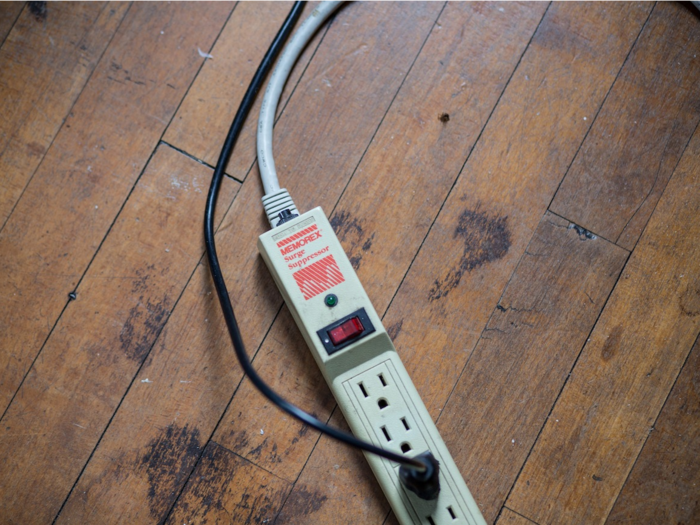
The typical American household owns 24 consumer electronics. What people don't realize is they are using electricity even when they're powered off, and US households spend as much as $100 per year powering these electronics.
Simple fix: Plug your devices into power strips and switch them off at once at the end of the day.
Other household hacks to save money each year include installing low-flow water faucets to save 60% on your water bill, sealing windows and doorways to save on heating costs, and investing in a programmable thermostat to cut your utility bills significantly.
Get used to spending money now that will save you money later.

It can seem counterintuitive to make purchases to save, but that's what some of the most successful money-savers do. They're not just buying things, they're investing in things — tools and services — that will eventually save them money over time, whether that's a programmable thermostat or an online project management certification.
"It's transparently easy to see money going out of your pocket right NOW, but it's harder to understand that you're actually investing in yourself," explains Sethi. "And when you invest in yourself, there's no upper bound on what your return can be."
For instance, by age 30, you'll want to have invested in things like a good work bag, a reliable car (if you drive), and freedom from your student loans.
Take pleasure in living simply and using less.

The best savers simply choose to live modestly.
"The really big items that sink a lot of people are houses and cars," Darrow Kirkpatrick, who retired at age 50 with a net worth of $1 million, tells Farnoosh Torabi on her podcast "So Money." He and his family live in a medium-priced home, which they paid off in 10 years.
Julie Rains, who achieved millionaire status by age 40, relayed a similar belief: "For me, living modestly — having a small house and not having a luxury car — really helped a lot. Keep those fixed costs low."
Popular Right Now
Advertisement